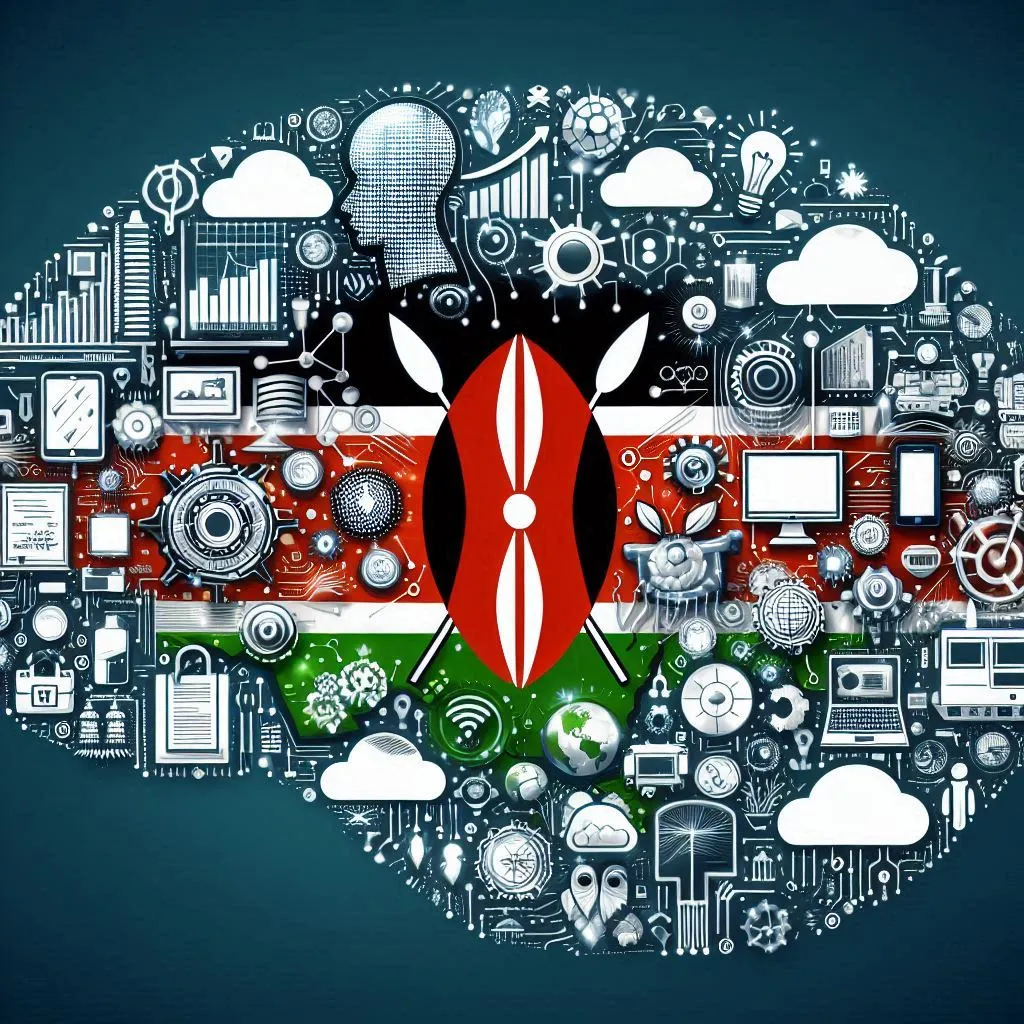Artificial intelligence (AI) is rapidly transforming industries worldwide, yet many small and medium-sized enterprises (SMEs) in Kenya remain unaware of its full potential. AI isn’t just for large corporations—it offers practical, scalable solutions that can help Kenyan SMEs in both the service and retail sectors enhance their operations and increase revenue. What’s even more intriguing is how under looked AI strategies can be leveraged to gain a competitive edge.
Here are some often-overlooked AI applications that Kenyan SMEs can use to drive business growth.
1. AI-Driven Customer Support with Chat bots
Many Kenyan SMEs, especially in the hospitality, tourism, and healthcare sectors, overlook the power of AI chat bots for customer service. While big brands use them, smaller businesses often miss this tool’s potential. AI-driven chat bots can answer customer queries 24/7, book appointments, and even offer tailored recommendations. For instance, a small healthcare clinic can use chat bots to manage appointment scheduling, freeing staff to focus on in-person care. Similarly, a hotel can deploy an AI chat bot to handle room bookings, answering frequently asked questions and suggesting personalized travel packages.
2. Personalized Marketing with AI
AI can supercharge personalized marketing efforts by analyzing customer behavior and making tailored product or service recommendations. In retail, AI tools can track customer purchase histories and preferences to suggest items they are most likely to buy, either through email or social media. A small organic beauty products shop could leverage AI to recommend specific skincare products to customers based on their past purchases or preferences. Service-based businesses, such as legal or healthcare firms, can use AI to send targeted email newsletters or personalized service recommendations based on client needs.
3. AI for Social Media Management and Advertising
With social media being the largest marketing platform in Kenya, AI tools can help businesses make the most of it by managing and optimizing posts, ads, and engagement. AI can analyze what content resonates most with your audience and suggest optimal posting times for better reach. Retail businesses, such as fashion boutiques or electronic stores, can use AI tools like Hoot-suite or Sprout Social to schedule posts, respond to comments, and monitor performance in real time. Similarly, a tourism company can use AI to automatically tweak ad targeting for different audiences, ensuring more precise marketing.
4. AI-Powered Inventory Management
For retail businesses, keeping track of inventory is crucial. AI tools can predict trends based on sales history, enabling businesses to manage their stock more effectively. A small electronics shop, for instance, could use AI to predict which products will sell during specific seasons, ensuring they have the right amount of stock without over-ordering. This strategy reduces waste and saves money. For service-based businesses, like legal firms, AI tools can manage documentation and automate the filing process, allowing staff to focus on higher-value tasks.
5. Dynamic Pricing with AI
In a competitive market, AI-powered dynamic pricing can help Kenyan SMEs adjust their prices in real-time based on demand, competition, and other factors. A retailer selling consumer goods online could implement AI tools to automatically lower or raise prices depending on factors like customer demand or competitor pricing. Similarly, a hotel or tour company in Kenya could use AI to adjust rates for rooms or tour packages based on factors such as booking trends, seasonality, or even social media sentiment.
6. Fraud Detection and Cyber security
AI can significantly boost cyber security for Kenyan SMEs, particularly those handling sensitive customer information, like legal firms or healthcare providers. AI tools can monitor transactions in real time and flag suspicious activities before they become significant breaches. A retail business handling online transactions could implement AI-powered fraud detection systems to monitor patterns and block any unauthorized transactions. This not only helps protect customer data but also builds trust in the business.
7. Sentiment Analysis for Customer Feedback
AI tools can analyze social media comments, reviews, and customer feedback to determine the overall sentiment about your brand. For instance, a healthcare provider can use sentiment analysis to see how patients feel about their services and make improvements based on that data. A retail business, such as a fashion store, can monitor customer reviews and social media mentions to gain insights into customer satisfaction and preferences.
Conclusion
AI offers a wide range of practical applications for Kenyan SMEs in both the service and retail sectors. From AI-powered chat bots to dynamic pricing and fraud detection, these often-under looked tools can provide a competitive edge in a growing digital economy. Kenyan businesses that invest in these AI strategies will not only improve operational efficiency but also enhance customer satisfaction and drive growth.


